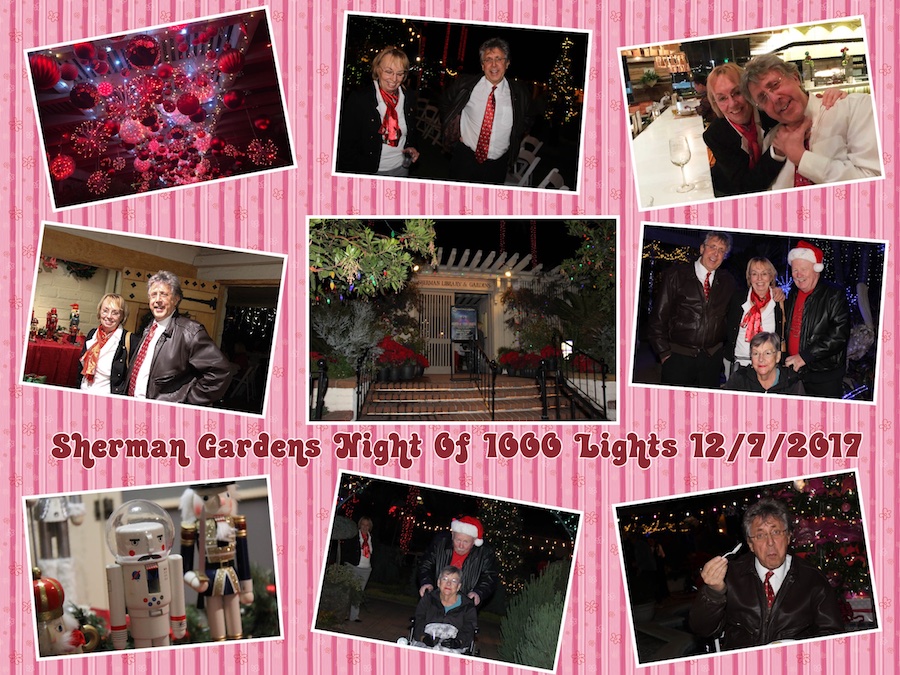Sherman Gardens 1000 Lights
Next Event
Page Created December 7th 2017 - Last Updated: 10/21/2024 22:21:PM
Brian and Jan flew in last night from the UK and we wanted to get the Christmas spirit in them ASAP. Sherman Gardens was the answer... Laid back, peaceful, and full of fun!
The gardens were decorated for Christmas and for visitors to enjoy the evening! It was a nice warm evening with several food stations and mini-bars throughout the gardens. We walked, sat, and visited for two hours before going to Cucina Eoteca to cap off the evening.
The Sherman Library and Gardens (2.2 acres) are botanical gardens located at 2647 East Coast Highway, Corona del Mar, California. They are open to the public every day but major holidays; an admission fee is charged most days.
Today's garden began in 1955 when Arnold D. Haskell (1895–1977) bought the Norman's Nursery property. Mr. Haskell named the Library and Gardens after his mentor and benefactor, M. H. Sherman (1853–1932).
The weather was perfect!
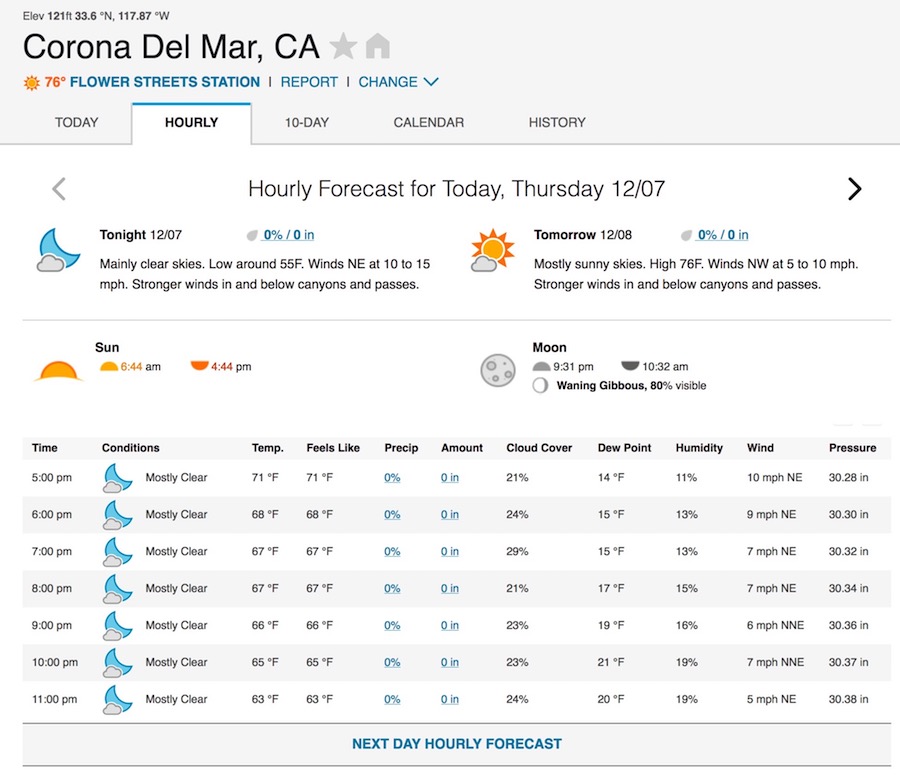

We went on "Members Night" which was on the 7th!

Every mini-garden was packed with lights!


Someone has been busy for quite a while
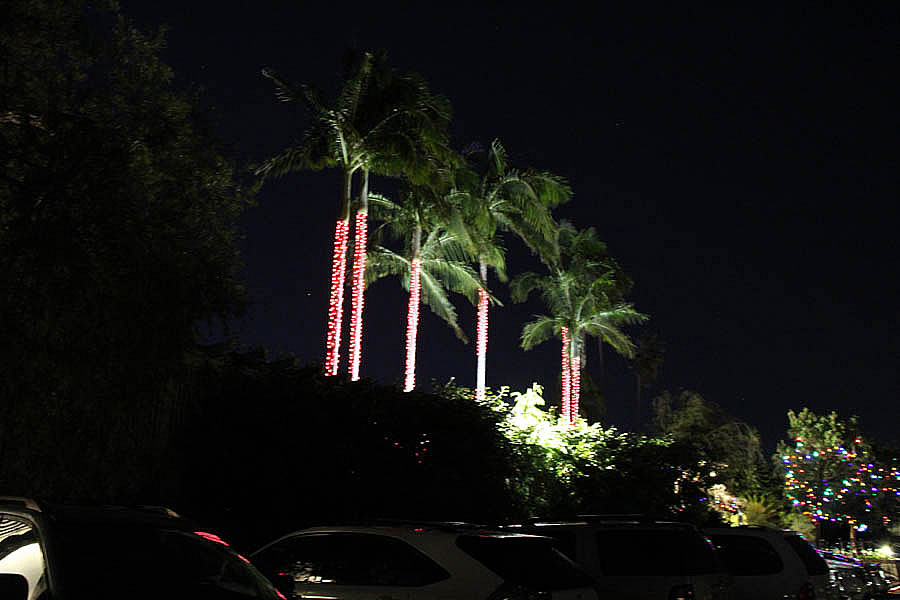
The lights are on and somebody is home!

Enter yea who dare...

We knew we were in for a treat immediately!

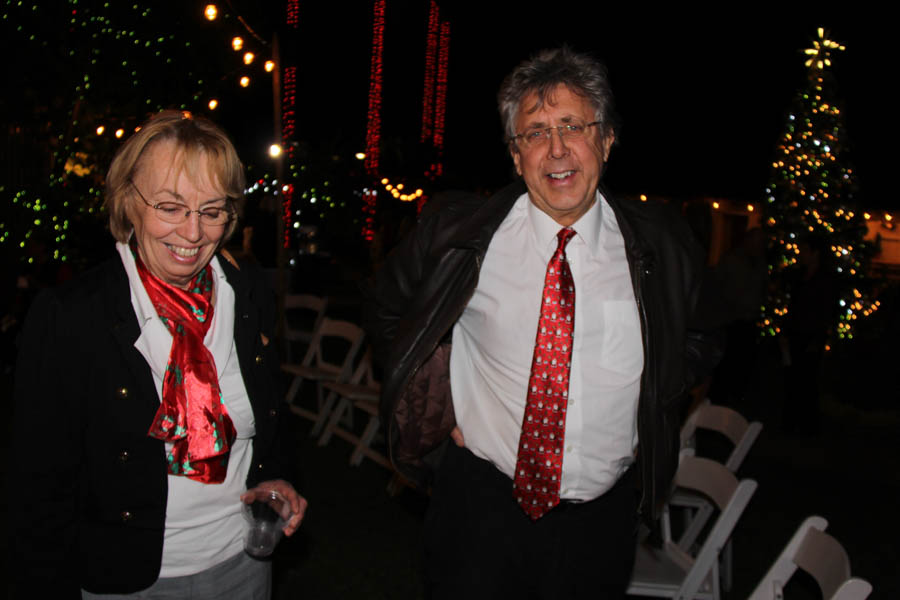
Decked out for the evening!
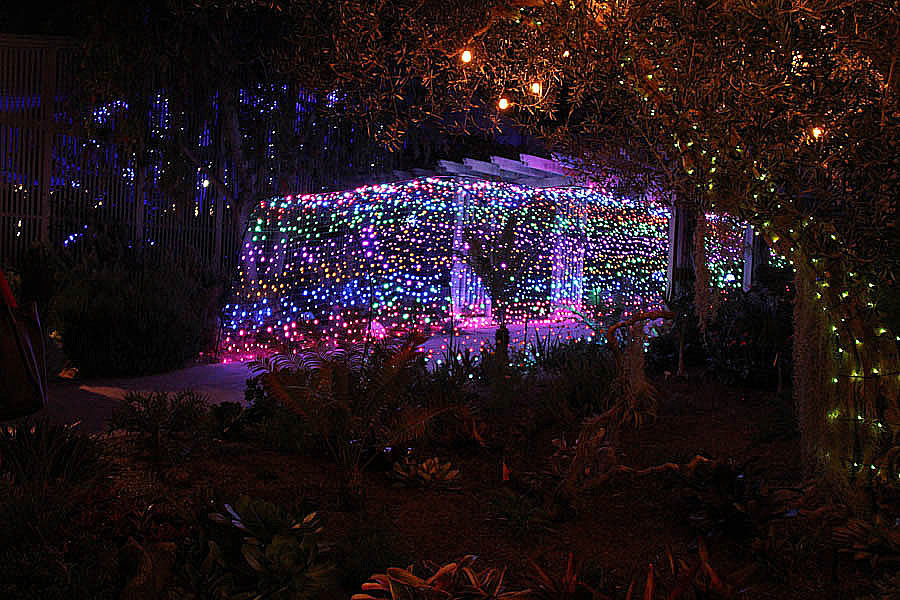
The tunnel in the distance... We will walk through it soon!

White Paul parked the van, everyone else found a great seat by the
"light fire" and procured wine and champagne!
Properly starting the evening!

The Cactus Garden was well lit... Under the sea?
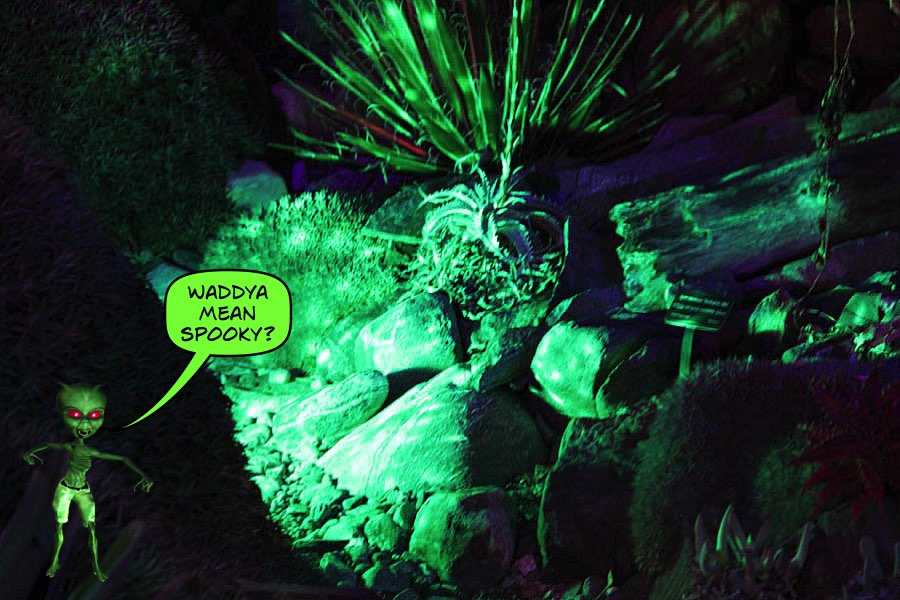
Looked a little haunted with the green lights
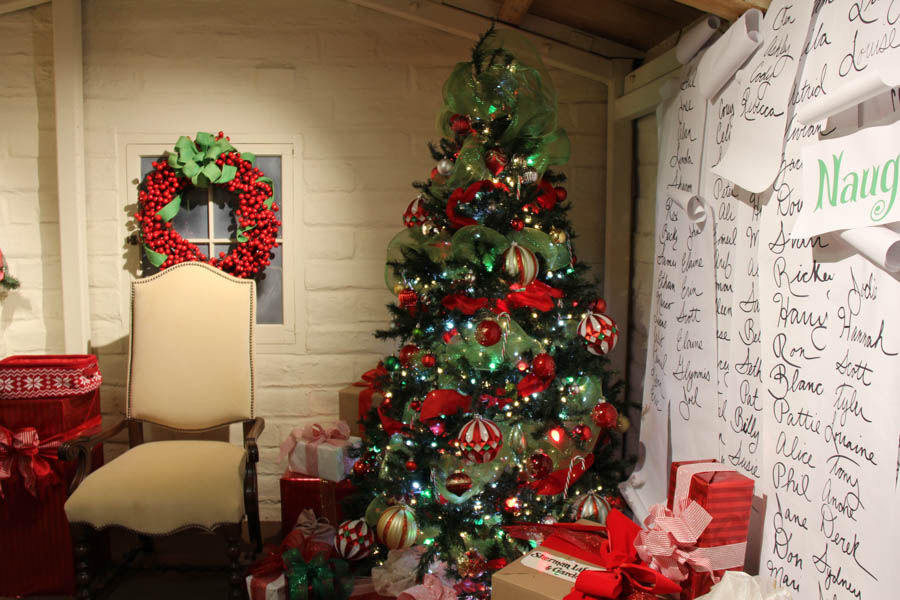
We checked the wall... None of us were on the "Naughty List"
(There was a BIG SMUGE in the P's)

The Nutcrackers welcomed us!
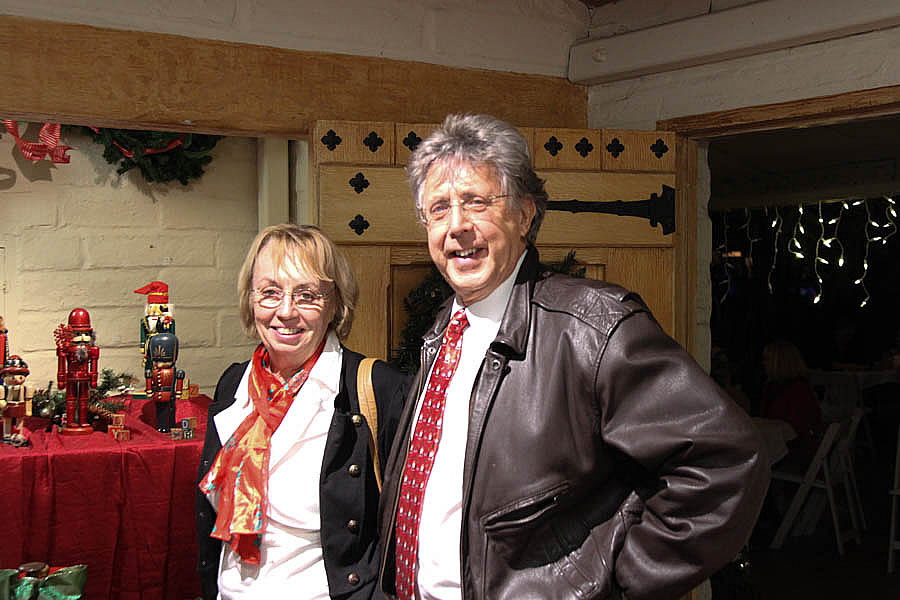
Blimy... 7:30PM, warm and no rain!

In the UK it was 40 degrees!


The space explorer!
Did You Know? - Nutcracker dolls originate from late-17th century Germany, particularly the Ore Mountains (German: Erzgebirge) region.
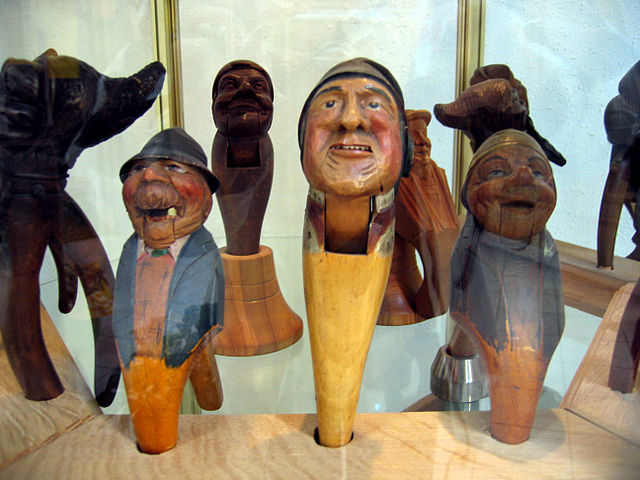
Original German Nutcrackers
One origin story attributes the creation of the first nutcracker doll to a craftsman from Seiffen. They were often given as gifts, and at some point they became associated with Christmas season. They grew in popularity around the 19th century and spread to nearby European countries.
As the demand grew, nutcracker doll production also began on a mass scale in factories. Friedrich Wilhelm Füchtner (de) (1844-1923), commonly known in Germany as "father of the nutcracker", began the first mass production of the design (using a lathe) at his workshop in Seiffen in Saxony during 1872.
Decorative nutcracker dolls began being popularized outside of Europe after the Second World War, when numerous American soldiers stationed in Germany came home to the United States with German nutcrackers as souvenirs.

Older items in the collection
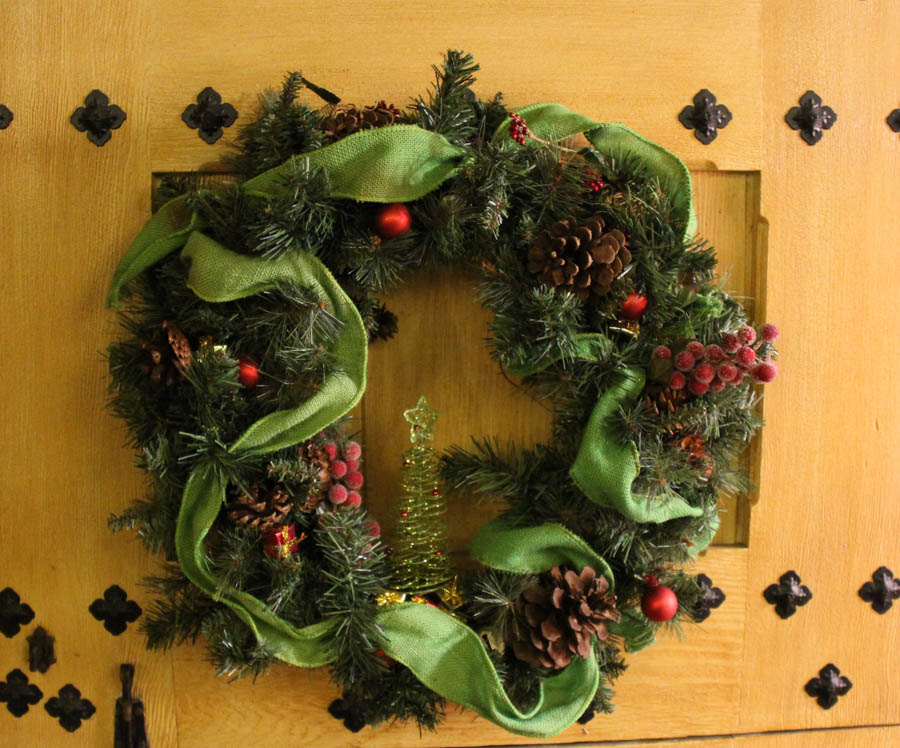
Interesting wreaths
Did You Know? - In Christianity, wreaths are used to observe the Advent season, in preparation for Christmastide and Epiphanytide, as well as to celebrate the latter two liturgical seasons.
These wreaths, as with other Advent and Christmas decorations, are often set up on the first Sunday of Advent, a custom that is sometimes done liturgically, through a hanging of the greens ceremony.
The Advent wreath was first used by Lutherans in Germany in the 16th century, and in 1839, Lutheran priest Johann Hinrich Wichern used a wreath made from a cart wheel to educate children about the meaning and purpose of Christmas, as well as to help them count its approach, thus giving rise to the modern version of the Advent wreath.
For every Sunday of Advent, starting with the fourth Sunday before Christmas, he would put a white candle in the wreath and for every day in between he would use a red candle.
The use of the Advent wreath has since spread from the Lutheran Church to many Christian denominations,[19][20] and some of these traditions, such as the Catholic Church and Moravian Church, have introduced unique variations to it.

Warning... Do NOT lick the candy canes...


It awaits our arrival!
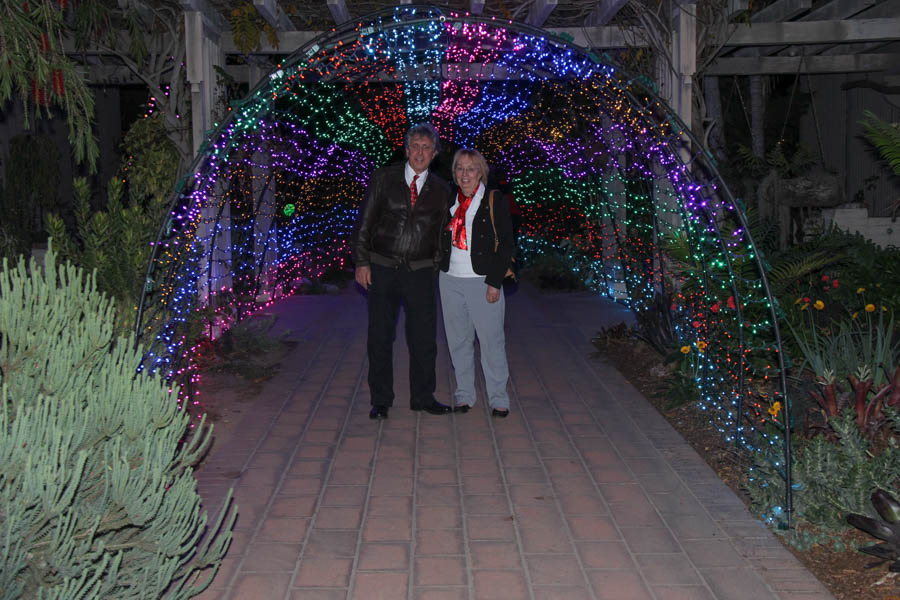
Ah... How about a smooch or two??

Beep Beep, here we come!
 Rollin' rollin' rollin'
Rollin' rollin' rollin'
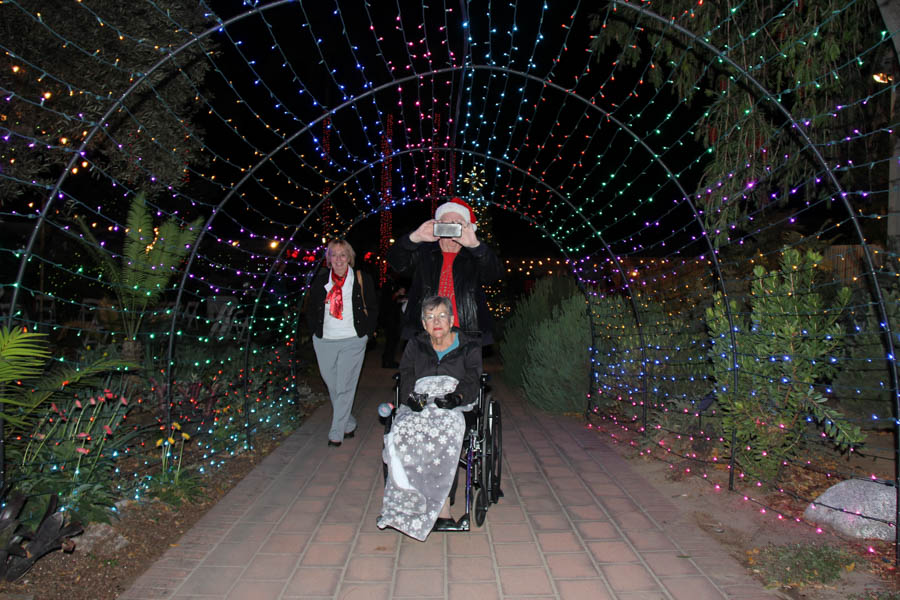
The camera's face off!


Difficult to capture at night...

Dinosaur eggs?
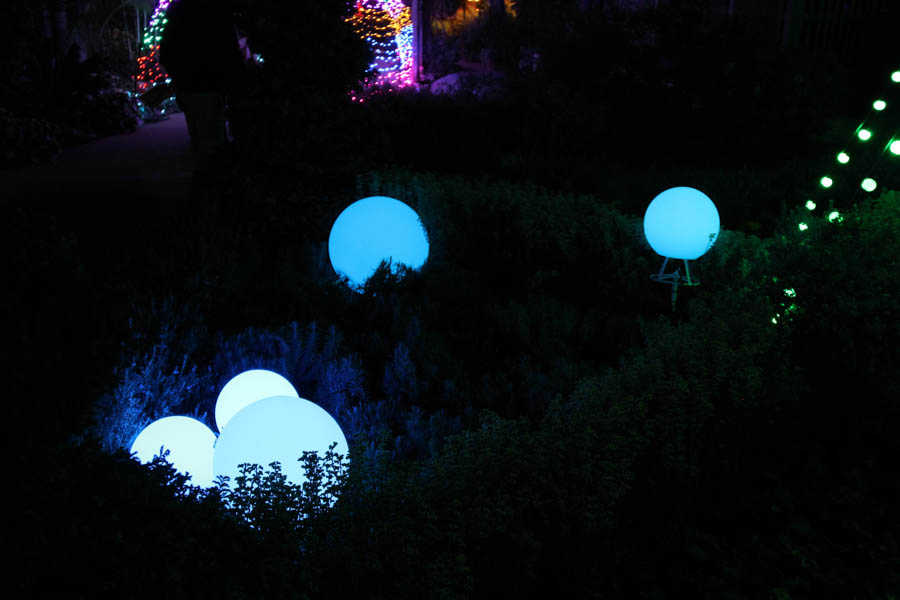
Not only did they light up, they changed color!

Red eggs? Where is that dinosaur?

Think about it for a minute!
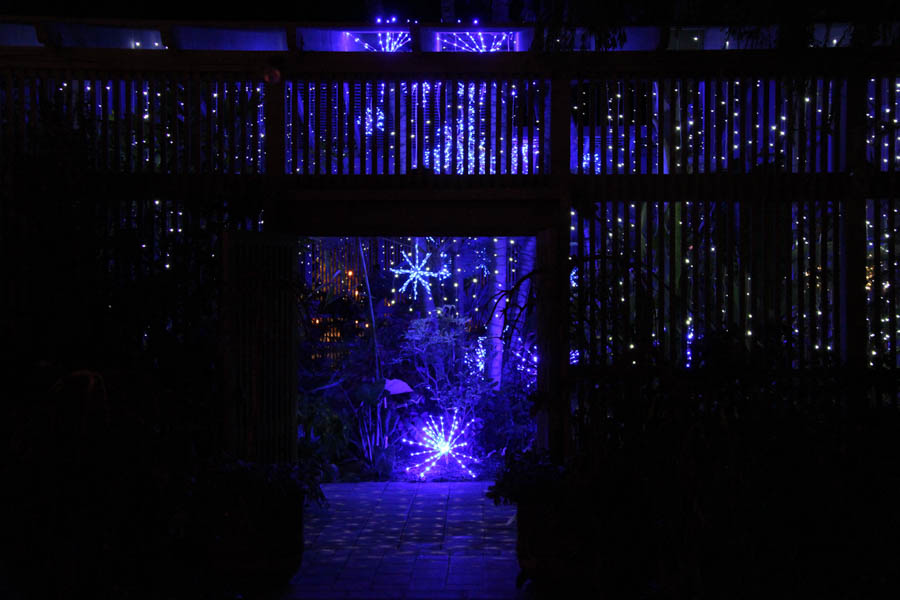
The Blue Room is really the Tropical Conservatory
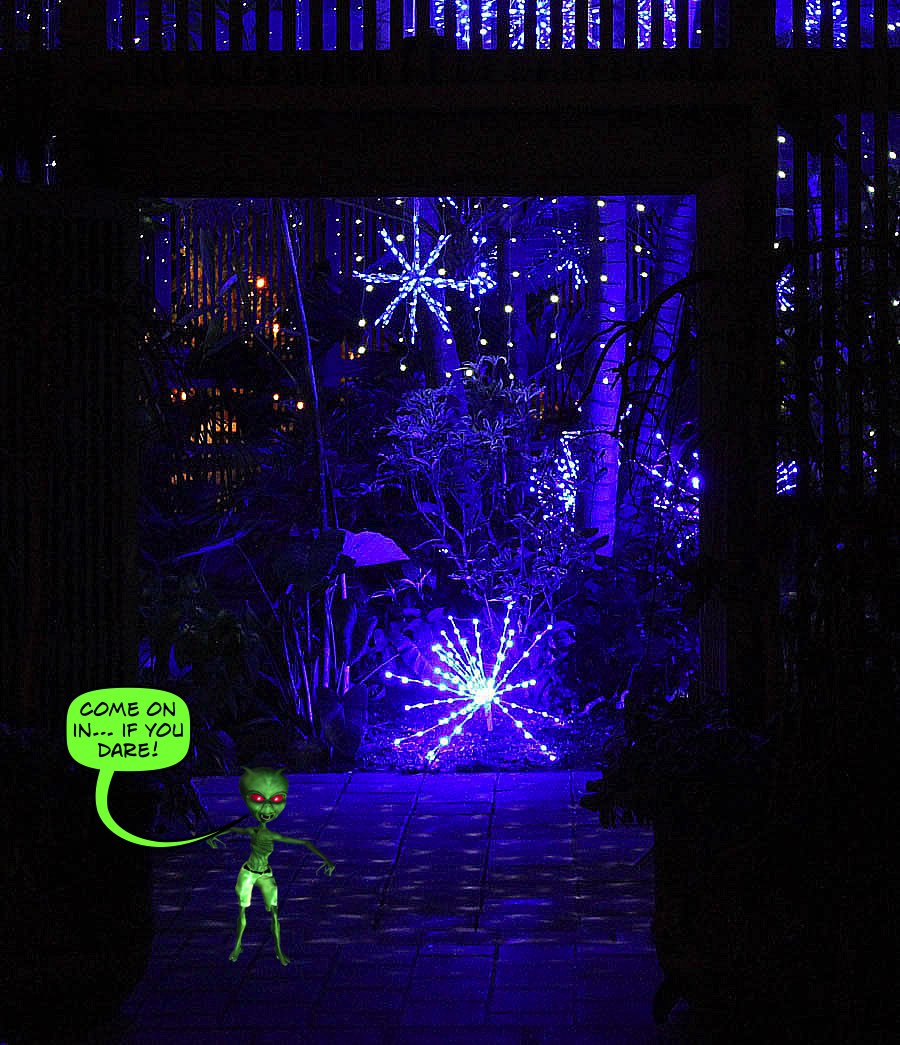
Looks a little "spacey" tonight!


Bangers and Mash... Without the Bangers
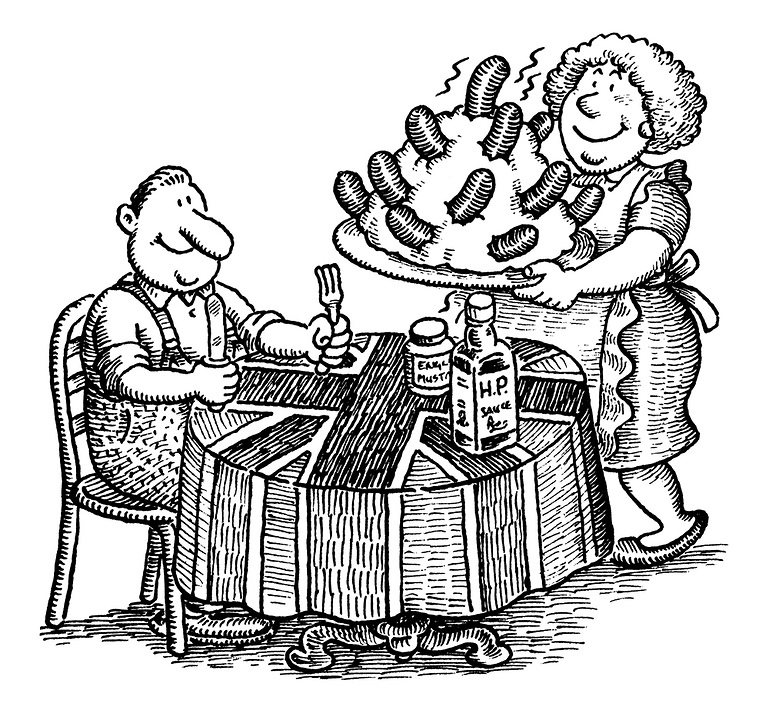

The Flamingo gets up at sunrise and does his version of cock-a-doodle-do!
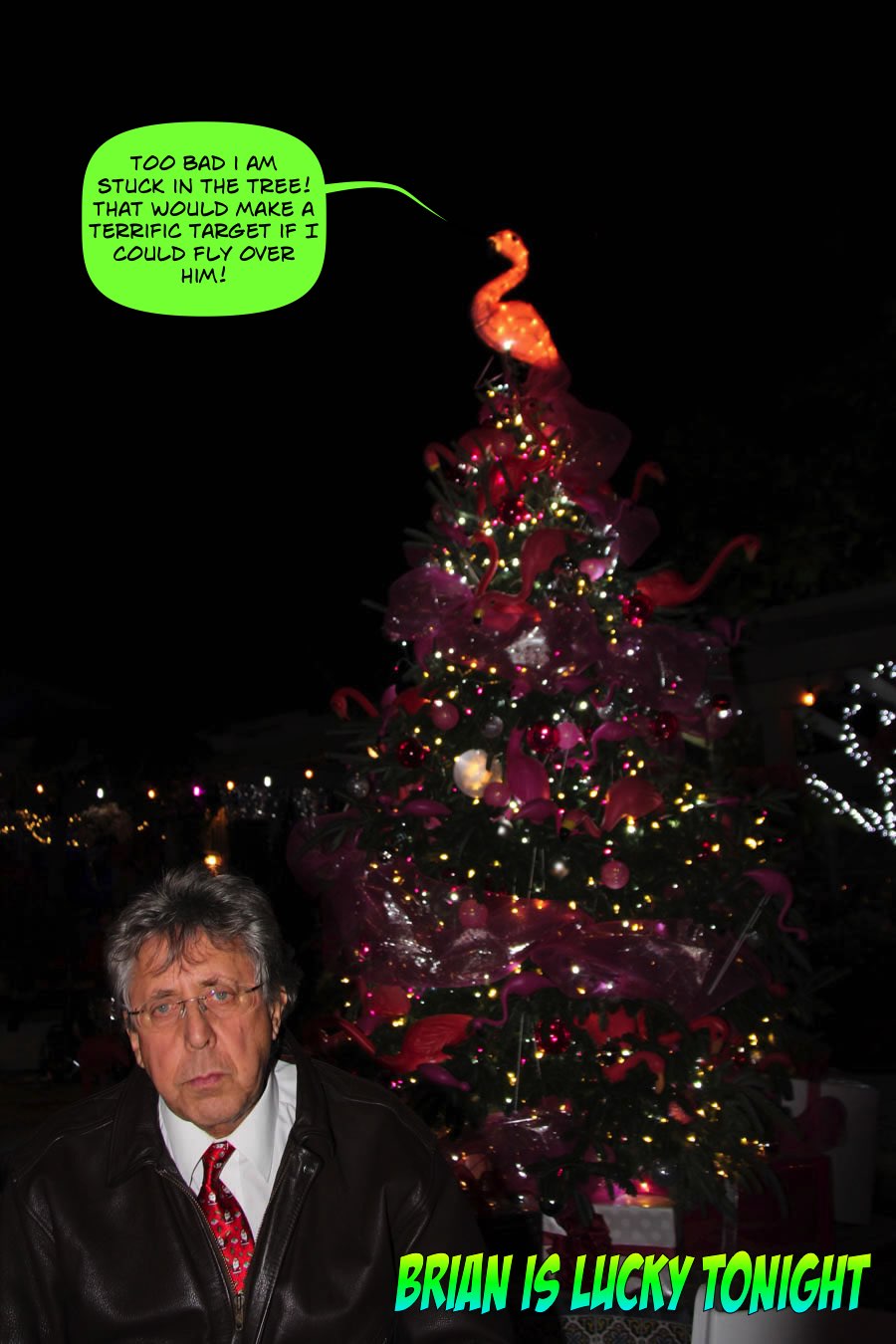
... loving the evening!
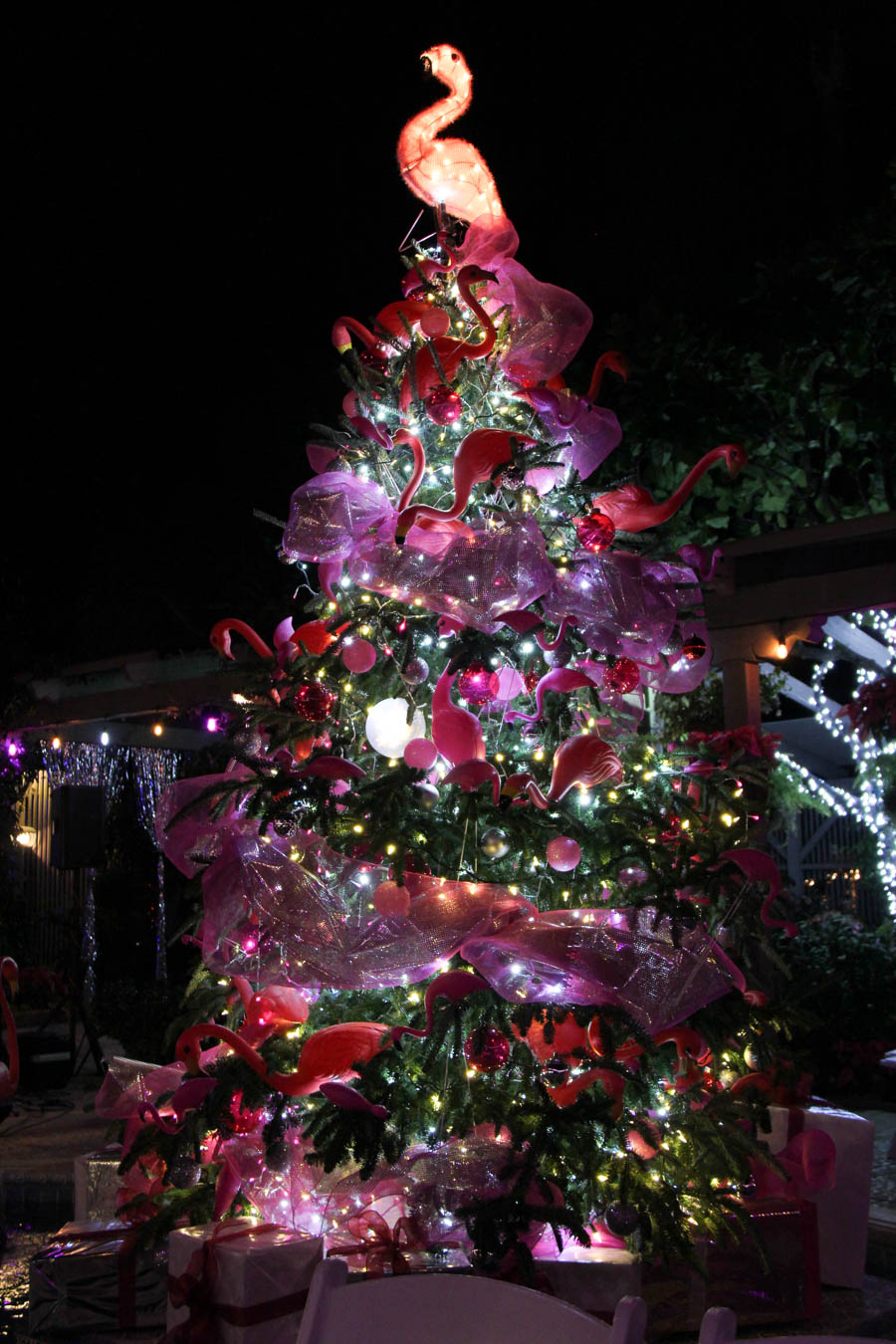
On top of the heap!
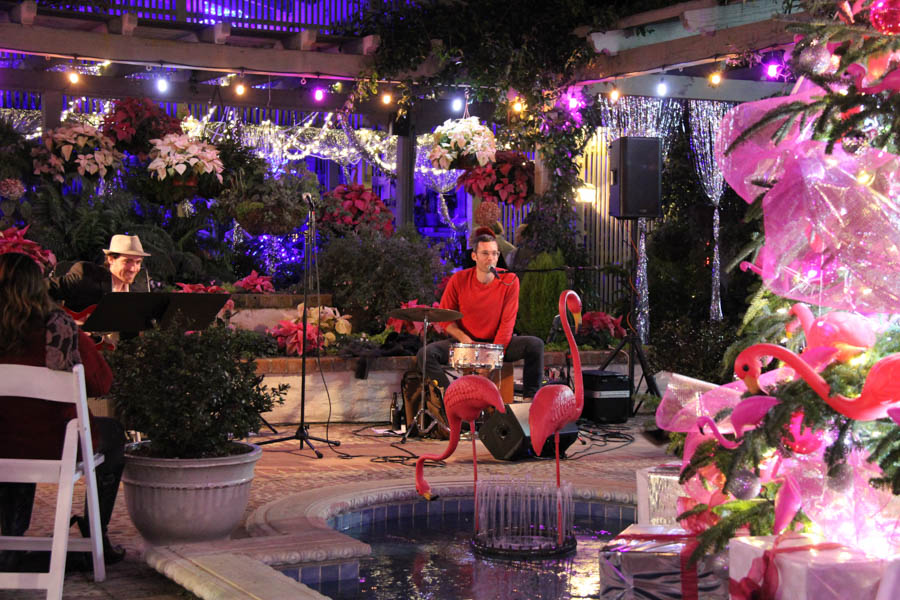
Good music... It was pleasant to sit, sip wine, and listen!

Great vocalist with a pleasing voice!

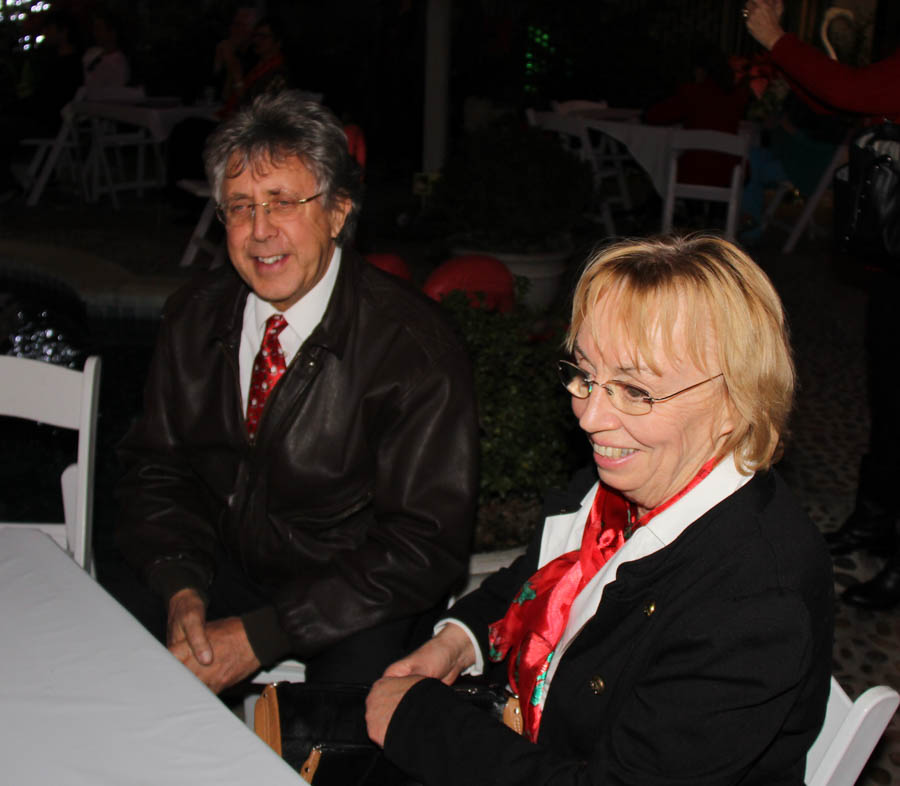
Ready to walk some more!
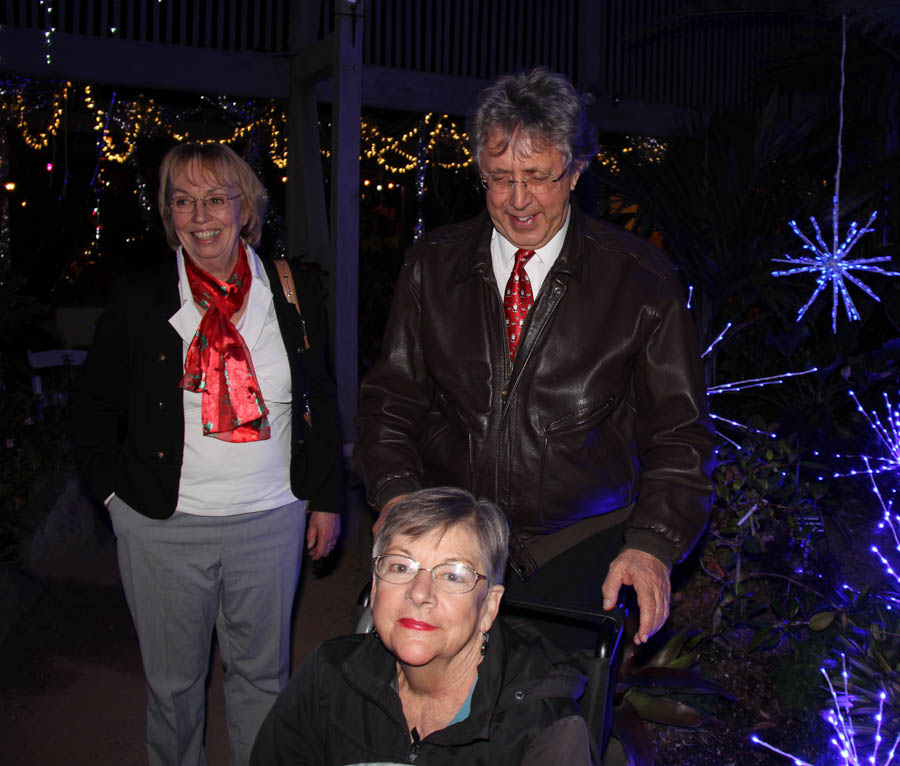
Brian gets the photos hoot set up!

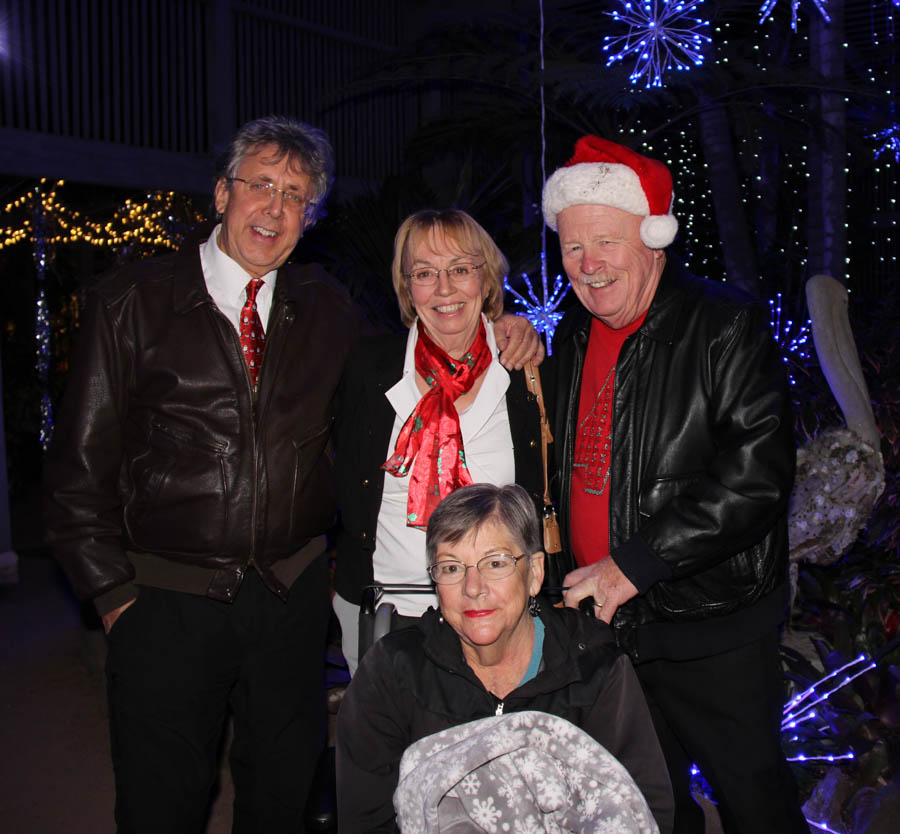
All smiles... A wonderful evening with friends!
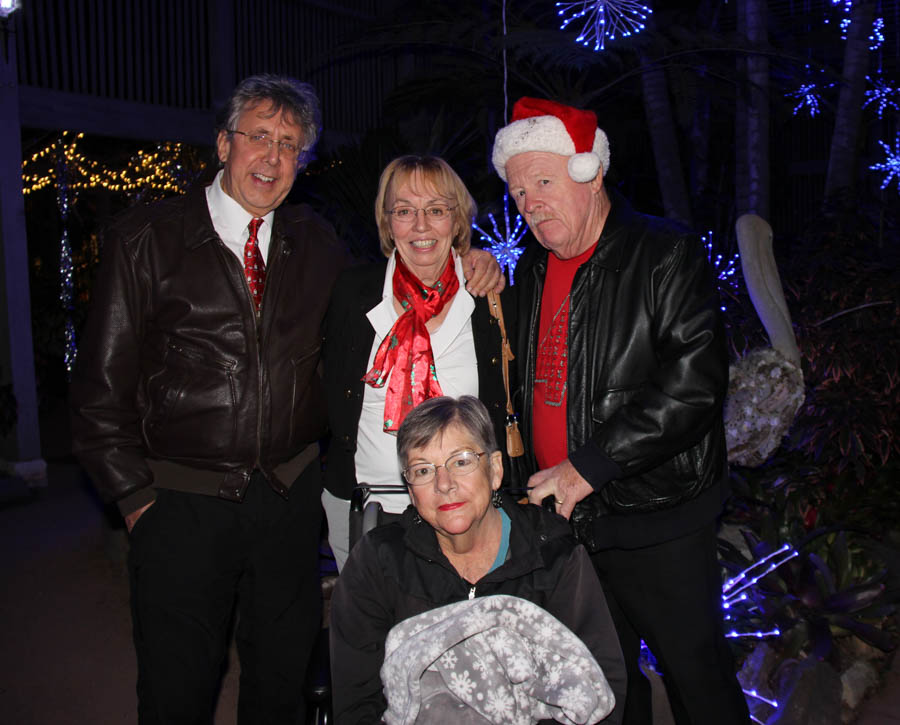
A nice lady originally from South Africa took our picture
(We checked, she was NOT taking our souls)
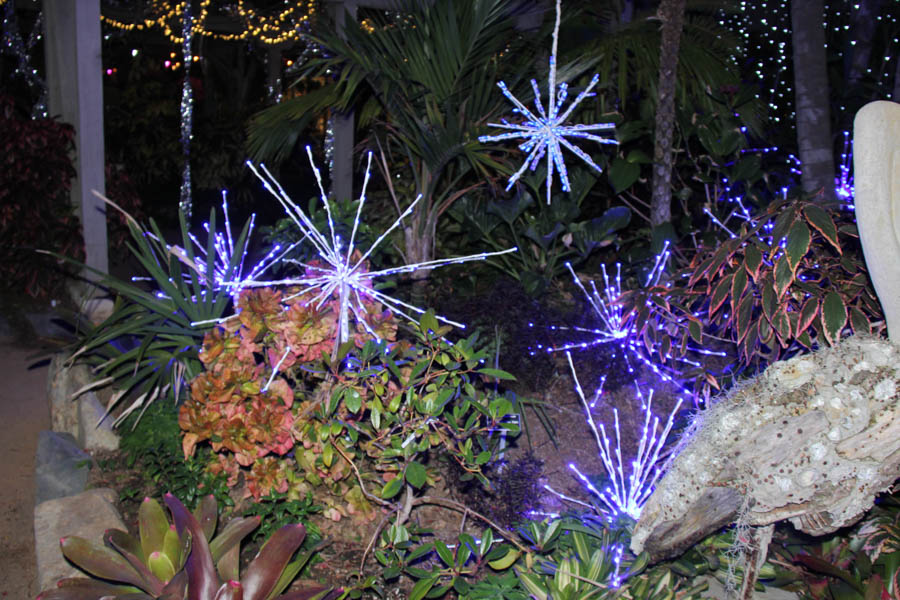
With the flash
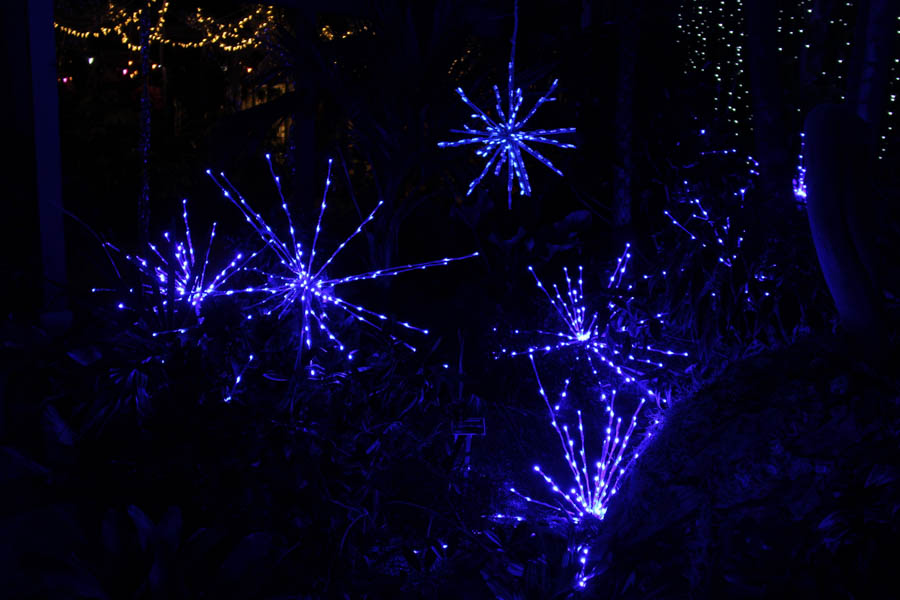
Without the flash
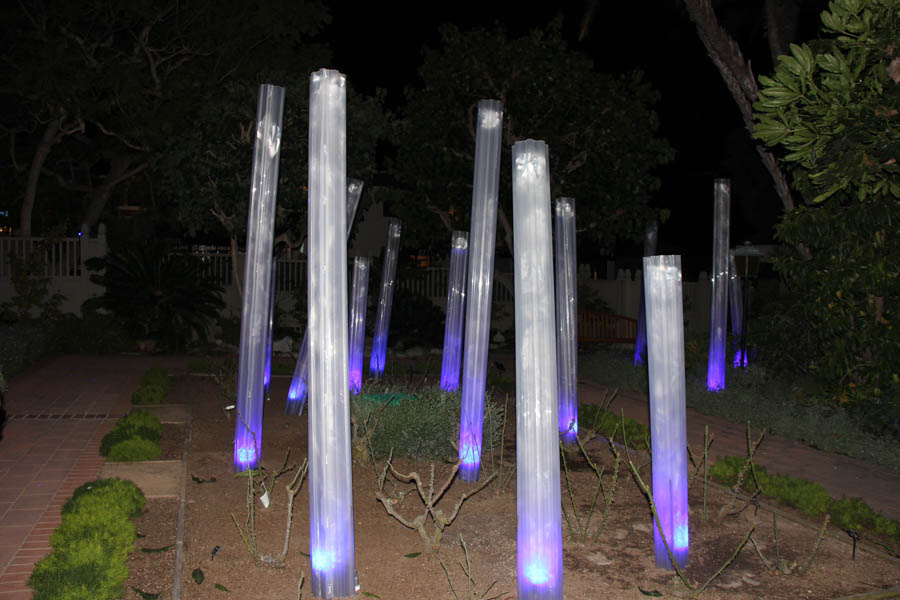
We had to see what it really looked like!
Simple rolls of plastic with a light in the bottom
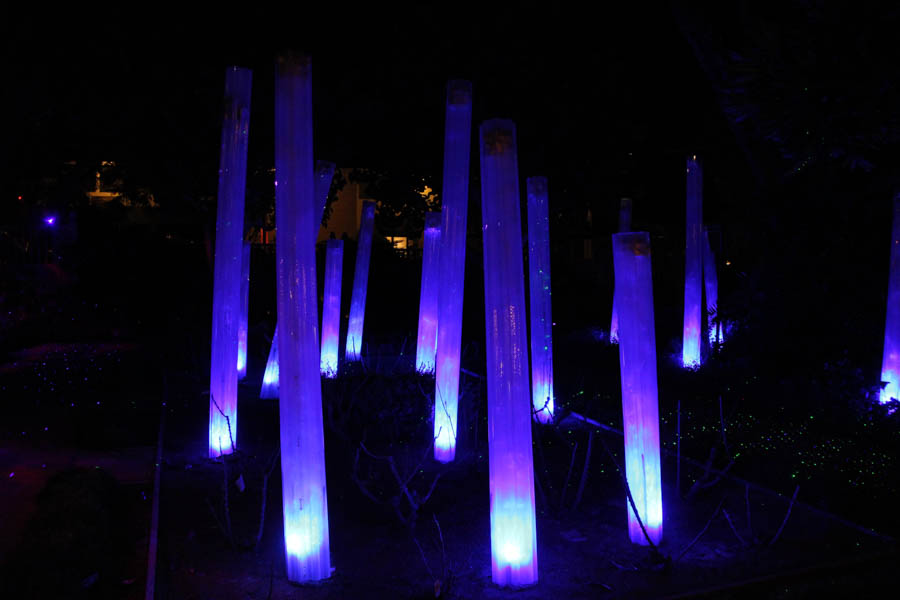
We expect Brain to do some decorating at home now!

Did You Know? - Enoteca (plural: Enoteche) is an Italian word that is derived from the Greek word Οινοθήκη, which literally means "wine repository" (from Oeno/Eno- Οινός "wine", and teca Θήκη, "receptacle, case, box"), but it is used to describe a special type of local or regional wine shop that originated in Italy. The concept of an enoteca has also spread to some other countries.
A genuine enoteca is primarily directed at giving visitors or tourists the possibility to taste these wines at a reasonable fee and possibly to buy them.
An enoteca is often run in collaboration with growers or growers' or tourism organizations in the village or region.
The reason such establishments were named to connote ”wine libraries” was that they were intended as a hands-on source of information on local wines rather than as regular outlets for larger quantities of each wine, or primarily intended for established customers. Often, an enoteca stocks rather small amounts of each wine, and customers who wish to purchase large quantities after tasting are referred directly to the producers. In some cases, an enoteca will also sell other local foodstuff and/or serve small snacks to go with the wines.

Brian tried the Botanist Gin in his tonic!
Did You Know? - We asked Brian for his analysis of the new gin and he told us...
BODY – The spirit is satin smooth gliding over the palate like no gin you have ever tried before. A totally seductive experience.
NOSE – The aromas explode like an olfactory Aurora Borealis, filling the senses with meteorites of smell sensations as they explode from the glass. Sweet delicate menthol, apple mint, spring woodlands, juniper, coriander with aniseed undertones, lemon and orange peel, a bouquet of summer flowers on the Machir, honey from thistle, coconut from gorse, wild mint and summer meadows. It’s a magical melody of Islay’s natural bounty from the Atlantic washed beaches to the summit of heather covered hills. Inhale and you’re there on the queen of the Hebrides!
PALATE – The taste is rich and mellow; cool on entry then as it reaches the back palate you can feel the warmth and absolute purity of slow unhurried distillation. This is a bewitching, delectable and luxurious gin; its citrus freshness excites and stimulates the taste buds allowing you to experience a star-burst of flavours as they explode across the palate.
FINISH – All this from a beaten up old pot still, operated by beaten up distillers on the coast of heaven.
MOOD – Carefree. The electric buzz of illicit anticipation.

Brian has a little difficulty remembers the reindeer's names


